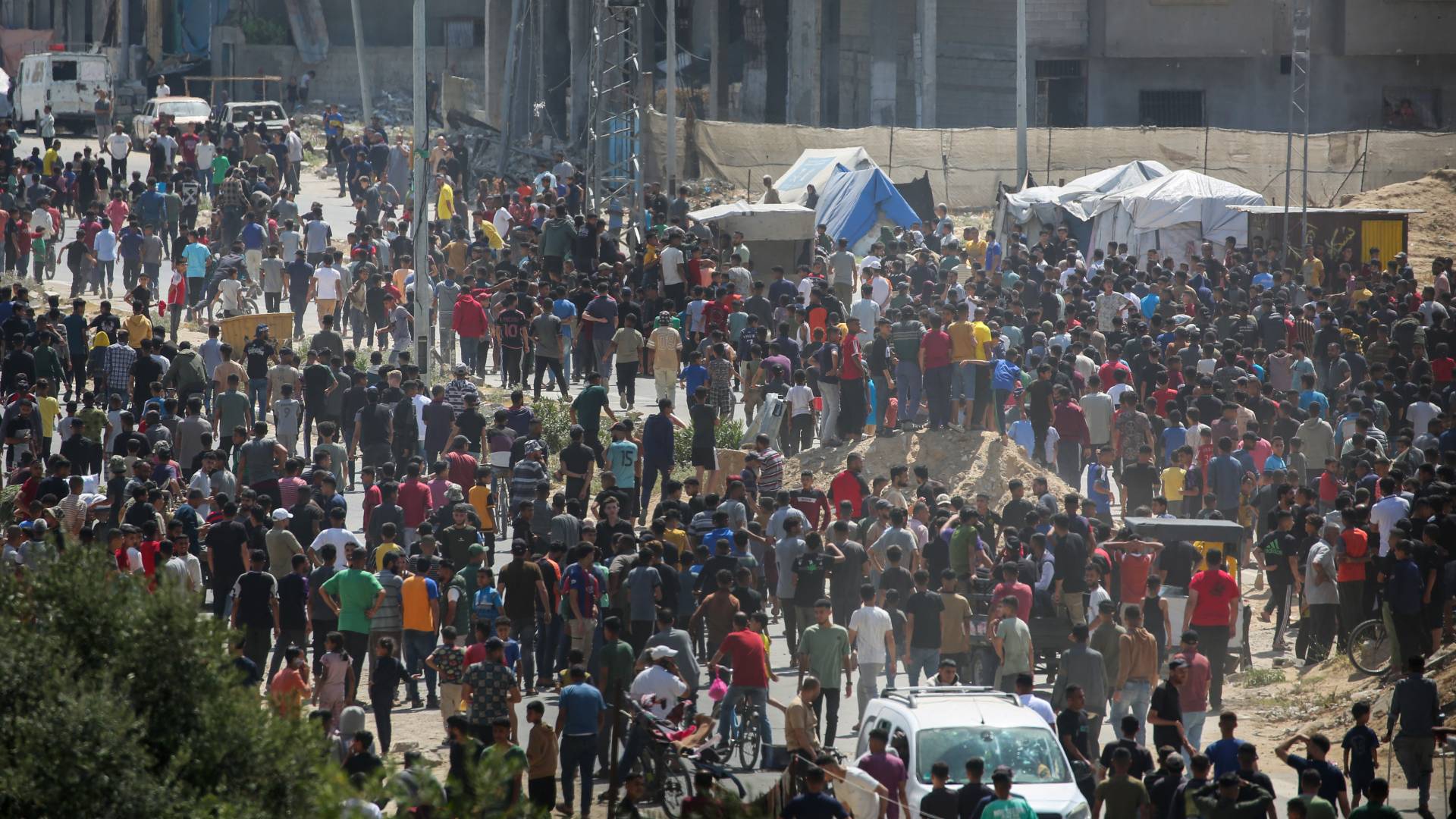Displaced Palestinians in Deir el-Balah in the central Gaza Strip. (May 28, 2025)
“100 percent” of Gazans at risk of famine, warns United Nations
Gaza is "the hungriest place on Earth", the United Nations said Friday, warning that the Palestinian territory's entire population was now at risk of famine.
Negotiations to end nearly 20 months of war have so far failed to achieve a breakthrough, with “Israel” resuming its aggression on Gaza in March, ending a six-week truce.
"Gaza is the hungriest place on Earth," said Jens Laerke, a spokesman for the UN humanitarian agency OCHA.
"It's the only defined area -- a country or defined territory within a country -- where you have the entire population at risk of famine. 100 percent of the population at risk of famine," he said, rejecting claims to the contrary by “Israeli” authorities.
In recent days, “Israel” has partially eased a total aid blockade on the Palestinian territory that it imposed on March 2, leading to severe shortages of food and medicine.
Daniel Meron, “Israel's” ambassador in Geneva, rejected the claim, saying UN agencies "cherry pick the facts to paint an alternative version of reality and demonise Israel".
"In a desperate effort to remain relevant, they lambast the best efforts of Israel and its partners to facilitate delivery of humanitarian aid to the civilian population. UN feeds Hamas, we make sure aid gets to those in need," he wrote on X.
“Catastrophic hunger”
At a press briefing in Geneva, Laerke detailed the difficulties faced by the United Nations in delivering humanitarian aid into the Gaza Strip.
Laerke said 900 trucks of humanitarian aid had been authorised by “Israel” to enter the Strip since the blockade was partially lifted.
But so far only 600 trucks have been offloaded on the Gaza side of the border, and a smaller number of truckloads have then been picked up, due to multiple security considerations.
Laerke said the mission to deliver aid was "in an operational strait-jacket that makes it one of the most obstructed aid operations not only in the world today, but in recent history".
Once truckloads enter Gaza, they are often "swarmed by desperate people", Laerke said.
"I don't blame them, for one second, for taking the aid that essentially is already theirs -- but it's not distributed in the way we want."




